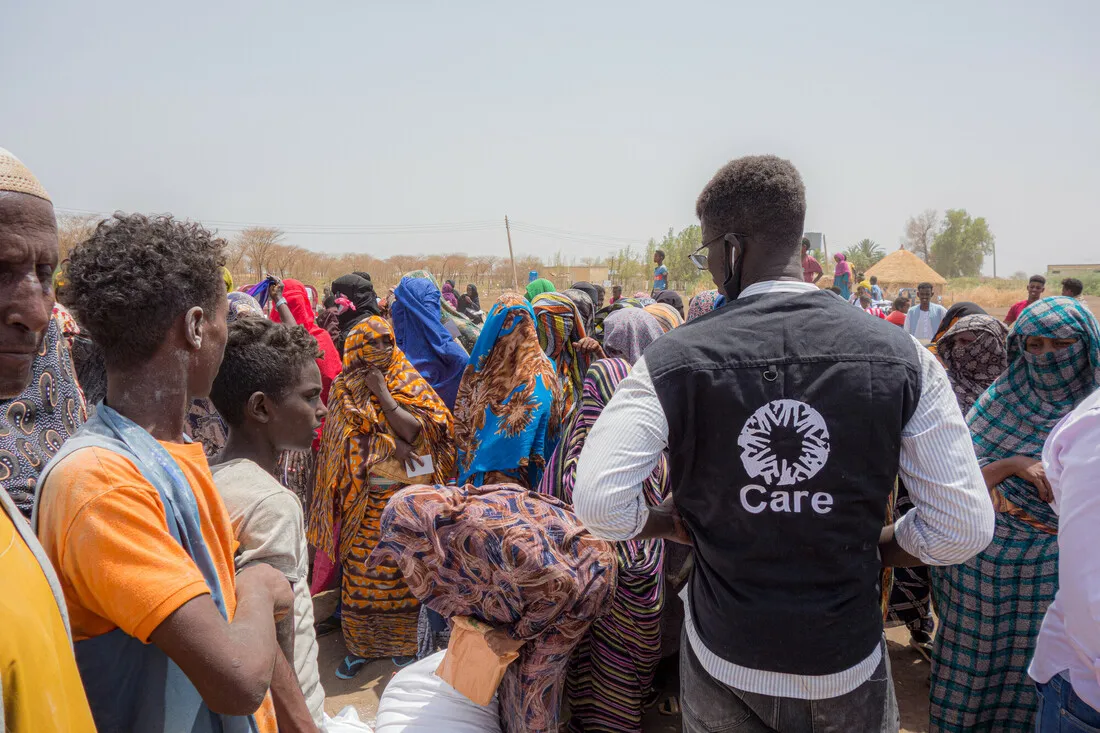Nairobi, Kenya, October 15, 2024 – As the world commemorates the International Day of Rural Women, CARE calls attention to the growing plight of women in rural parts of Sudan where the conflict is devastating their lives, livelihoods, and futures. Sudan’s 18-month conflict has caused immense suffering, with tens of thousands killed and millions displaced. Women and girls have borne the brunt of the conflict and remain particularly vulnerable to the violence, in addition to their difficulties to provide for their families amidst critical shortages of food, healthcare, and essential services.
“Women are the backbone of communities in rural Sudan, but they are being torn apart by this conflict,” said Abdirahman Ali, CARE Sudan Country Director. “They experience constant violence, displacement, and extreme poverty, and yet they persevere. On this International Day of Rural Women, we urge the international community to swiftly provide the resources needed to support these women. Their resilience deserves not only recognition but meaningful action.”
The conflict in Sudan has disproportionately affected women, who even before this crisis faced significant challenges due to poverty and social inequality. Sudan’s conflict has left its healthcare system on its knees, and women and girls can no longer access reproductive health services. They lack medical attention to address sexual violence and many are forced to deliver children without medical attention, risking their and their children’s lives. Displacement has exacerbated food insecurity, with women unable to properly feed their children, increasing malnutrition and disease infections.
The destruction of agricultural land, output and services, livestock, markets, and trade has stripped off the primary source of income for families – especially in rural areas. This has worsened women’s poverty and ability to meet basic their families’ basic needs. Moreover, violence against women and girls, including sexual violence and human trafficking, remains widespread in these regions, causing long-lasting psychological and physical trauma.
Through its interventions, CARE Sudan is working to empower rural women economically and socially. However, the ongoing conflict is hindering progress and placing the lives of women and their families at risk. CARE Sudan remains committed to assisting women in rural areas by providing food baskets, hygiene supplies, and support for disease prevention. CARE is partnering with three Women Led Organizations (WLOs) in Sudan, including Zenab for Women in Development, Almanar, and Reira, in Kordofan, East Sudan and Darfur. However, the scale of the crisis far exceeds available resources, and greater global attention is necessary to address the immense humanitarian gap.
“It’s time to end this war and bring peace to Sudan. The international community must not forget the suffering of Sudanese women and children,” implored Fatima Ahmed, Director and founder of Zenab for Women in Development. “Despite the extensive work of aid organizations, the humanitarian crisis in Sudan is worsening. Local actors require more resources to end the suffering of women and girls and provide urgently-needed assistance.”
Echoing demands made in our report capturing the ongoing war on women and girls in Sudan, CARE is calling for:
- Facilitated access to, and adequate, quality and longer-term (multi-year) funding to for women-led initiatives, including to WLOs/Women Rights Organizations (WROs), women’s networks and women’s ERRs (in Sudan), and women-refugee led organisations in refugee hosting countries. Funding should be flexible enough to quickly pivot activities based on rapidly evolving situations and the changing needs of women and girls.
- Inclusion and support (funding, logistics) for the participation of local WROs/WLOs, women’s networks and women’s ERRs in sub-national, national and regional humanitarian coordination and planning structures, including in Humanitarian Coordination Teams in Sudan and neighbouring countries, and in peacebuilding and security initiatives at the national, regional and global levels.
Note to Editors:
- In April, CARE and our partners published a report capturing how the violence in Sudan amounts to a war on women and girls: Because We Are Women.
- CARE has been operating in Sudan since 1979, implementing humanitarian and development programs focused on women’s and girls’ empowerment, justice, humanitarian action, and resiliency.
- CARE supports over 83 health facilities in six states in Sudan, providing life-saving health and nutrition services.
- The resumption of nutrition and health services in Nyala was made possible thanks to generous funding from USAID – Bureau for Humanitarian Assistance and European Union Humanitarian Aid.
- CARE’s lifesaving operations are ongoing in:
- East Darfur – Water provision to refugees and host community; health services
- Gedaref – WASH provision for refugees, IDPs, and host community; health services
- Al Gezira – WASH provision to IDPs and host community
- South Kordofan – Supporting women’s empowerment through economic and livelihoods activities
- South Darfur – WASH provision, livelihoods, and community empowerment
- Khartoum – Provision of MPCA to most affected populations in Jebel Awily, Mayo, and Kalari communities
For media inquiries, please contact David Mutua, CARE East, Central & Southern Africa Regional Communication Advisor (david.mutua@care.org) or email usa.media@care.org.

